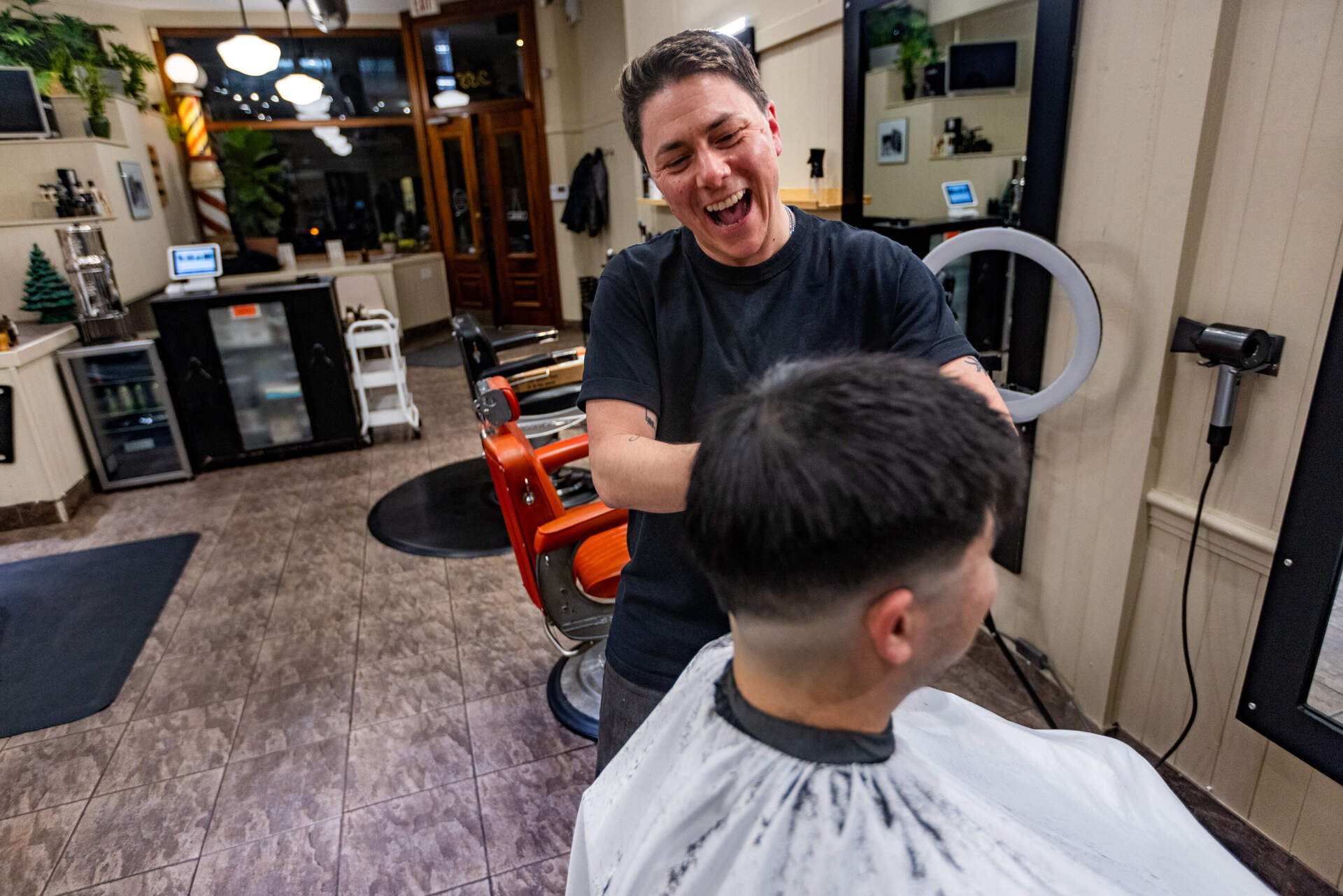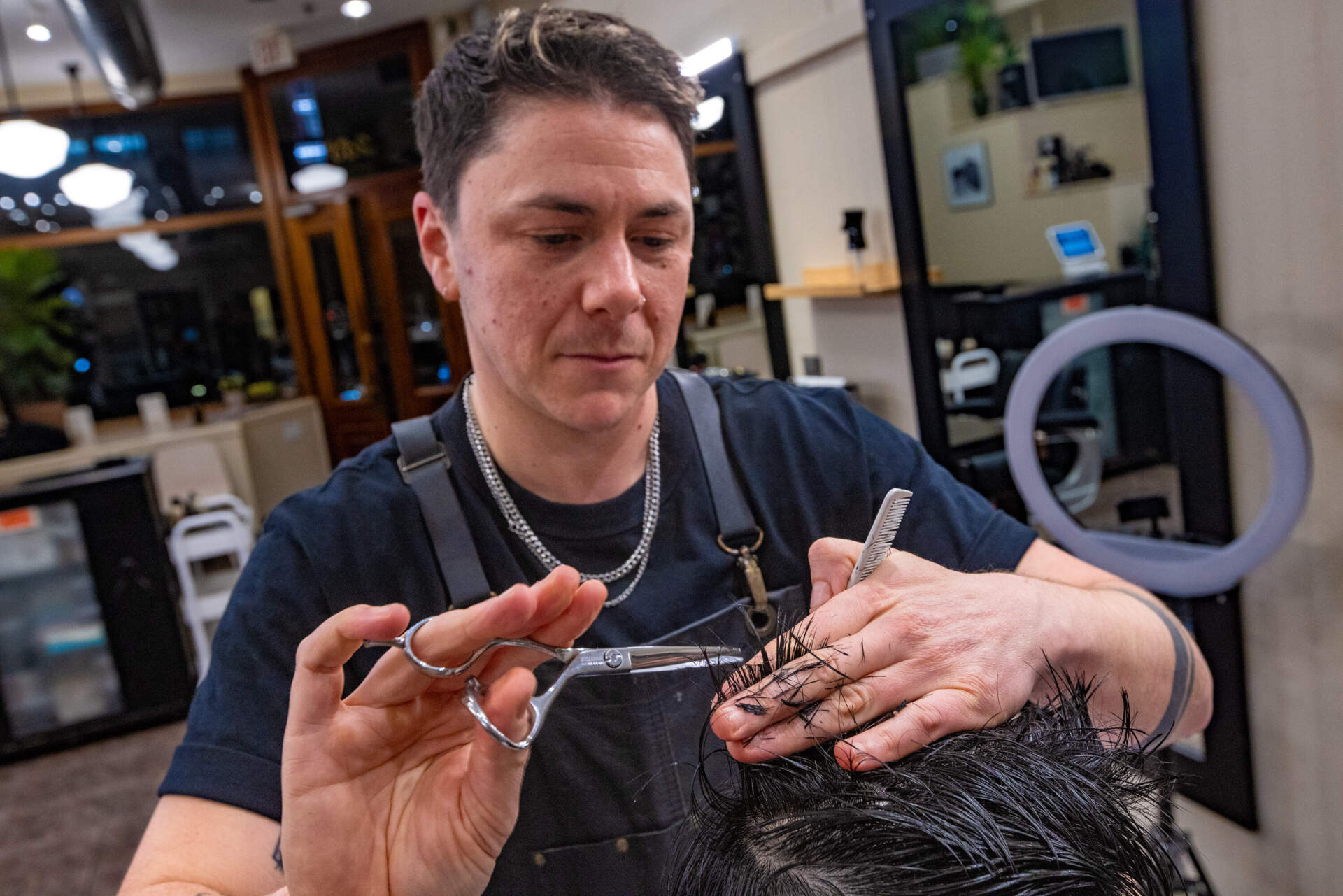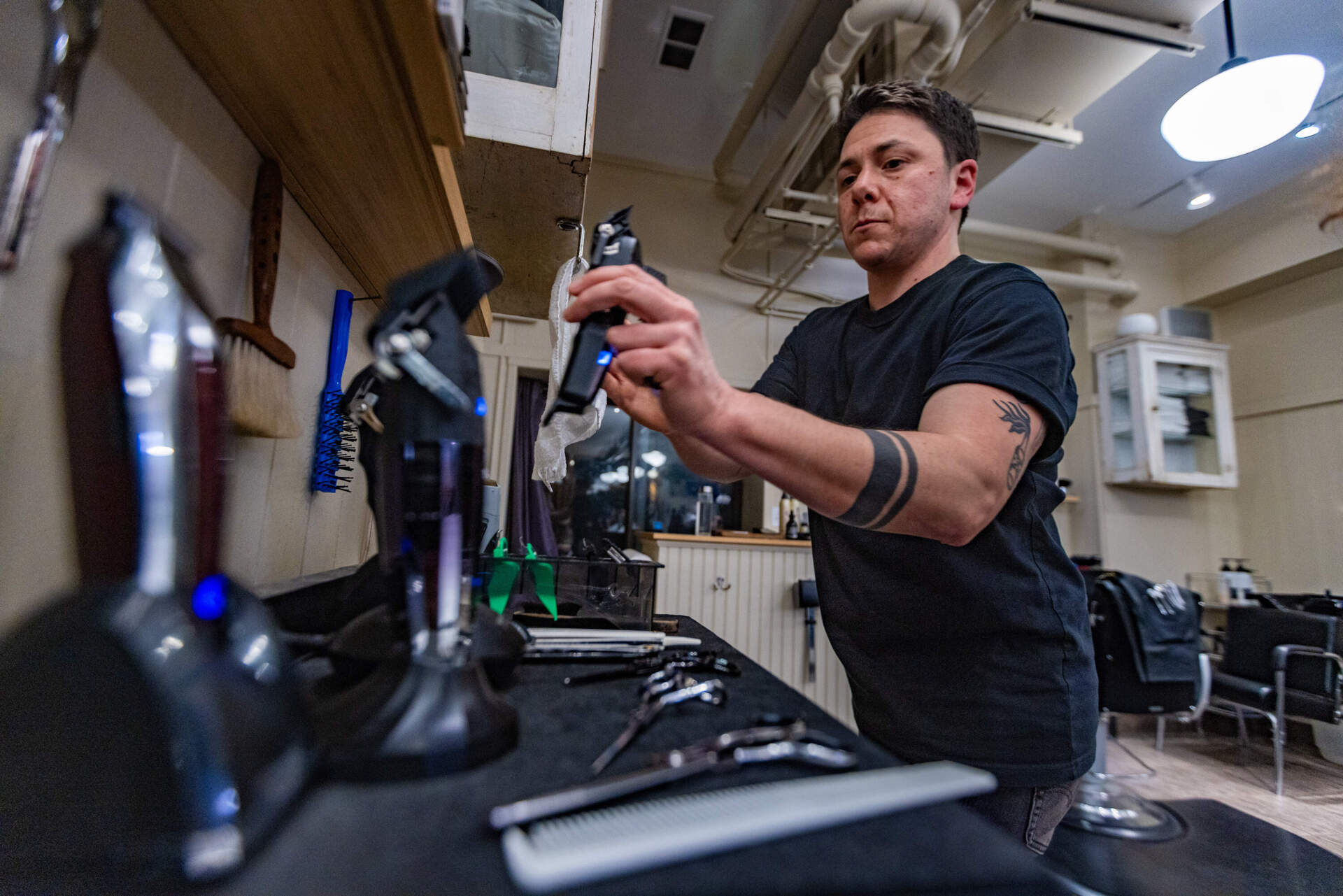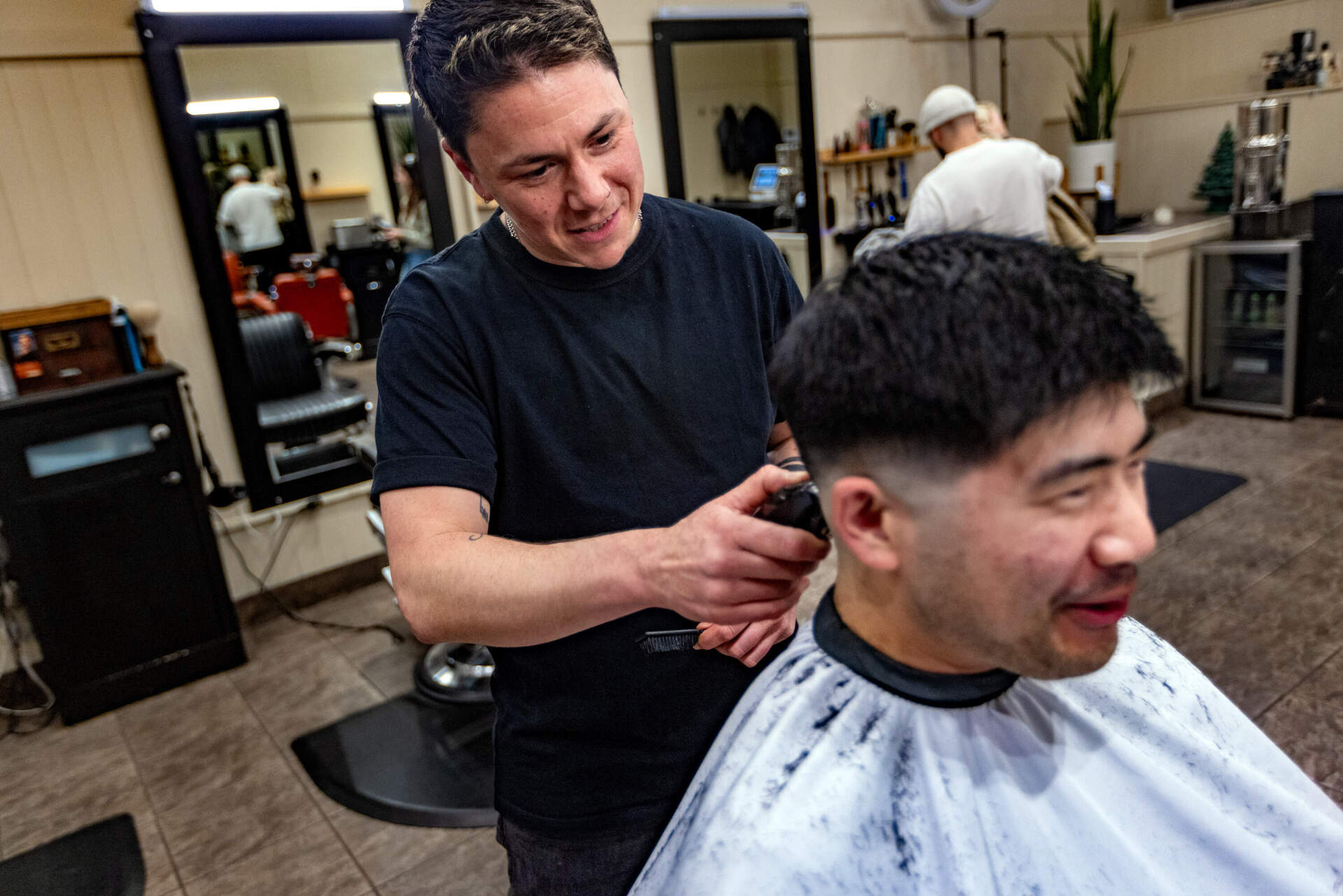Advertisement
A South End barber offers ‘gender-affirming’ haircuts and a safe space for the queer community
One of the first things Aaron Chiou did when he moved to Boston was seek out a barber. As a trans man, he said he didn’t feel comfortable going to just any barbershop.
“I don't really want to put myself in environments where I feel like it's … a bunch of like, dudes talking about sports and girls,” the 31-year-old said. “That's just not what I — not the type of environment I want to go into.”
So he was pretty excited when he was scrolling on Instagram and came across M Arida, a queer-friendly barber who works at Babershop Deluxe in the South End.
Now, Chiou sits down in Arida's chair about once a month for a fresh cut.
After some catching up on Chiou’s dogsitting adventures and Arida’s trip to Miami, Arida gets to work.
“Are we doing a mid-skin fade? We doing what we usually do?” Arida asks. “Get the hair out of your eyes, texturize it?”
Chiou agrees to the usual: a cut that’s tapered in the back and a little longer in the front.

Years ago, Arida, who is now 41, said they would feel frustrated getting their hair cut as a queer and nonbinary person.
“I would go to barbershops, and it was fine,” they said. “I never had like, a bad experience there, but I was like, they're not really my people, exactly, you know?”
When they found themselves without a job in 2017, they enrolled in a course at New England Hair Academy in Malden. They dreamed of one day opening a shop that created a welcoming space for the queer community.
“Wouldn't it be dope if there was like a barber shop, but it was all queer people, or there were like queer people in there cutting hair, or queer people hanging out,” Arida said.
They loved the idea of a casual, communal vibe for queer folks getting a cut.
While it's easier to find those type of barber shops in cities like New York and Los Angeles, Arida said that to their knowledge, they became the first barber in the Boston area to market specifically to the queer community in 2019. Today, clients who are ultra-masculine, nonbinary, gay women and people of all gender identities come to Arida’s chair to freshen up their looks.
Advertisement

A couple years ago, Arida started promoting their barber skills on social media, posting hundreds of short videos and garnering millions of views. As of February, they had more than 73,000 Instagram followers and nearly 24,000 TikTok followers.
Each video shows Arida asking clients about their preferred pronouns, their relationship with their hair, and their hairstyle inspiration. Many clients shared that their relationship with their hair can be complicated. Some come to Arida seeking drastic changes. Some of the more viral videos feature a client cutting their hair short for the first time, with Arida supporting them along the way.
Arida said they’re surprised by the attention the videos have gotten — both positive and negative.
“Sometimes it trips me up when people send me like, hate DMs. And I'm like, ‘I'm just over here making my, like, dumb little haircut videos.’ Like, I don't know, ‘Why are you getting so mad?’ ” Arida said. “I'm just like, yeah, queer people need to get their hair cut, and they shouldn't have to feel uncomfortable.”
Arida said they’re careful to protect clients’ identities, and they never tag them in videos.
Arida said they’ve seen increased demand for their services as their social media popularity grew, and have a long waiting list. They said they decided to raise their prices and limit their working hours to 40 a week in order to keep their business sustainable.
Social media follows have hyped Arida for offering “gender-affirming haircuts.” And Arida said they want their chair to be a place that helps all people feel more comfortable with themselves.
“I just don't think that a lot of cis people, like, think about it that way, because they don't really have to,” they said. “People feel good after a haircut. Everybody does. And I think it's because they feel, like, more affirmed in their appearance, and gender presentation is part of your appearance.”
Arida said many clients also use their hair as a tool to help figure out their own gender identities.
“Getting a haircut, like, you don't need to go, like, see a doctor. You don't need a prescription. You don't need insurance,” they said. “It's a thing that, if you're struggling with your appearance, and this goes for anybody ... it's something that you can do to help yourself.”

That’s how client Aaron Chiou began his own gender transition. He bought a pair of clippers in high school, but it wasn’t until he was in college that he said he felt ready to cut his hair short.
A decade later, Arida finishes the final touches on Chiou’s cut. It’s cut close to the skin at the base of his neck, and is left long enough to run his fingers through near his forehead.
“I think it looks great,” Chiou says as he admired his new look in the mirror. “Feels good, too.”

This segment aired on February 9, 2024.
